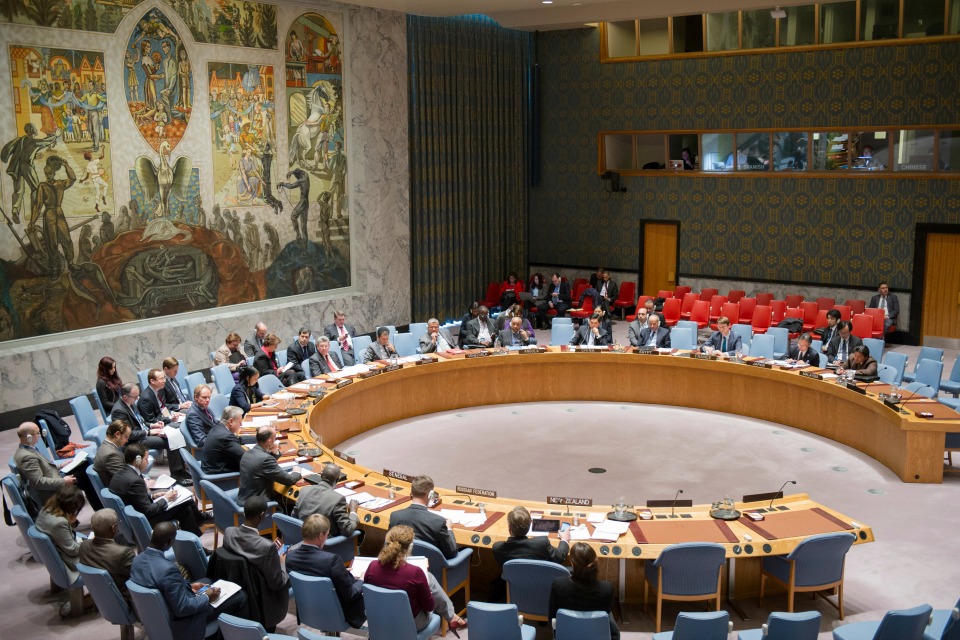"OIC states have a valuable role to play in building an even stronger consensus around the UN’s work to prevent violent extremism."
Statement by Ambassador Matthew Rycroft, UK Permanent Representative to the United Nations, on the Organisation of Islamic Cooperation

Merci beaucoup, monsieur le Président. Thank you for convening this important debate, and I join others in thanking the briefers.
I warmly congratulate Yusuf Al Uthaimain on his election as the Secretary-General of the Organisation of Islamic Cooperation (OIC). The United Kingdom looks forward to working with him and with the OIC.
As the representative body of 57 Muslim majority states, the OIC speaks with a unique authority on the issues facing the Islamic world, so I’m glad that the OIC’s voice is being heard in this chamber today.
One such issue facing the OIC’s members, indeed all members of the UN, is the growing threat of extremist ideologies and violent extremism.
Sadly, as we in this Council know only too well, this threat affects Muslim majority states in a truly disproportionate way – in Iraq, in Syria, in Libya, in so many places.
Put simply and starkly, far more Muslim men, women and children have lost their lives at the hands of groups like Al Shabaab and Da’esh than any other faith or religion. The fact that these evil groups claim to represent Islam only makes this reality even more sickening.
The United Kingdom is clear that we must tackle violent extremism in all its forms, whether radical Islam or neo-Nazism. The OIC states are key partners in this fight, and I want to set out today three ways where our cooperation can help counter these ideologies.
First, it’s no coincidence that 18 members of the OIC are also members of the Global Coalition against Da’esh. Among them are of course our colleagues from Egypt and I want to pay tribute to the work of those two great Egyptian institutions, Al-Azhar and Dar Al-Ifta. These beacons of Islamic thinking help provide a narrative of tolerance that counters the hate preached by the likes of Da’esh.
The UK is committed to help spread that narrative, to showing the reality of Da’esh’s lies. That’s why we’re hosting the Coalition’s Communications Cell in London. It draws on the expertise of Coalition members, including our partners from the United Arab Emirates, to help counter the misrepresentation of Islam and its values by Da’esh.
Countering an ideology is part about offering a competing narrative. But it’s also about delivering consequences for those who join Da’esh and it’s about supporting survivors of their crimes by giving them a voice and ending impunity. That’s why the UK Foreign Secretary launched a campaign to bring Da’esh to justice with the Foreign Ministers of Iraq and Belgium on the first day of this year’s UN General Assembly. Da’esh accountability is a top priority for the UK and we are seeking UN action to preserve evidence of Da’esh’s crimes as a first step.
My second point Mr President, is that OIC states have a valuable role to play in building an even stronger consensus around the UN’s work to prevent violent extremism. Together we can make the UN system better at understanding and tackling the root causes of terrorism, including by addressing violent extremism narratives.
The UN is stepping up in this regard. The General Assembly last June directed the UN system to implement the relevant recommendations of the Secretary-General’s Plan of Action to Prevent Violent Extremism, and encouraged states to do the same.
We all now need to work to turn these concepts into action. This means mobilising the correct resources and expertise to enable UN entities to devise a strategic approach. And it means Member States developing National Action Plans on Preventing Violent Extremism, and helping other Member States to do so as well.
Thirdly and finally, Mr President, we need to recognise that countering extremist ideologies isn’t always about the UN or indeed about fighting Da’esh. Sometimes it’s about working together to create opportunities that provide an alternative to false ideologies.
Take for example, the Islamic Development Bank. The Bank serves the economic development needs of the 57 OIC countries with annual commitments totalling well over $10 billion. All OIC states can use those funds to finance projects that help improve the lives of people living in OIC states.
The UK is proud to be helping that effort. Our collaboration can be seen in the $25 million joint Arab Women’s Enterprise Fund that will create more jobs for women, and it’s seen in the $9 billion that the Bank committed at the London Conference on Syria.
So, in closing Mr President, we look forward to our collaboration with the OIC strengthening further. Whether through the UN, or the Coalition against Da’esh, or the Islamic Development Bank, it is clear that the OIC has a vital role to play in countering the dangerous ideologies that threaten international peace and security.
Thank you.